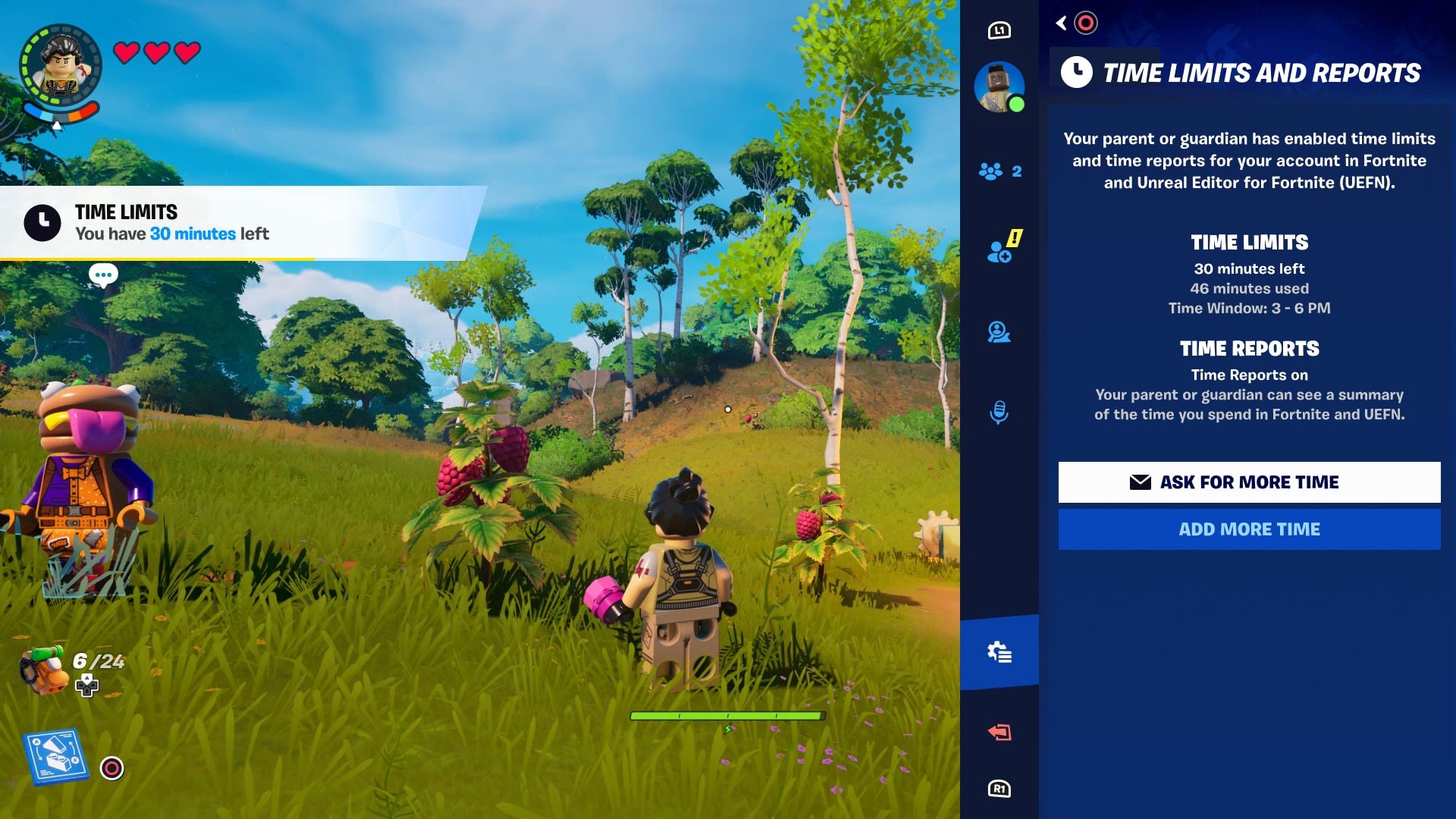
Fortnite Is Letting Parents Limit Their Child’s Game Time
Key Takeaways
- Epic Games has introduced a wealth of new parental control options for guardians to take advantage of in Fortnite.
- The controls allow guardians to limit just how much a child plays, as well as when, along with built-in Time Reports.
- Previously, a parent tried to start a class-action lawsuit, alleging that Fortnite was meant to be “addictive.”
Epic Games, the publisher behind the generational hit Fortnite, have introduced and implemented several new parental control options in a new update. The controls give parents, guardians and/or caretakers enhanced authority over just how much a child can play, including when, among other features.
The update, which went live on Oct. 1, works similarly to Apple’s Screen Time feature. Per a post on Epic Games’ website, there are two new parental control options, Time Limit and Time Report, which limits access to Fortnite and Unreal Editor.
Via the Fortnite main menu or the Epic Games account portal online, parents can limit the total amount of time a child can play, as well as set specific windows when they can play and whether the child can request more time once that limit has been reached.
On the player’s side, the child will see an in-game notification when they have 30 minutes left. Once that limit has been reached, they won’t be able to access Fortnite until the next window, unless a parent approves of more time. As for Time Reports, those operate just as their name indicates, with detailed info on usage.
Parents Tried Suing Epic Before
On their own, these changes aren’t particularly noteworthy, but it’s important to remember that back in 2023, a Vancouver, B.C., parent proposed a class-action lawsuit against Epic Games. They alleged that Fortnite was meant to be “as addictive as possible” for children.
The suit, which was obtained by CBC, detailed that their child had downloaded the battle royale in 2018 only to develop “an adverse dependence on the game.” At the time, Epic Games said that it would “fight these inflammatory allegations.”
It’s unclear where exactly the lawsuit went, but a little over a year later, and it seems like this is Epic Games’ response to future litigation. Seemingly, by providing parents with enhanced monitoring and limiting controls, the company can’t be held liable for any supposed “addictions.” Of course, only time will tell if that does end up shielding Epic. Either way, it’s a good start in terms of providing guardians with the tools needed to be proactive when it comes to gaming.




